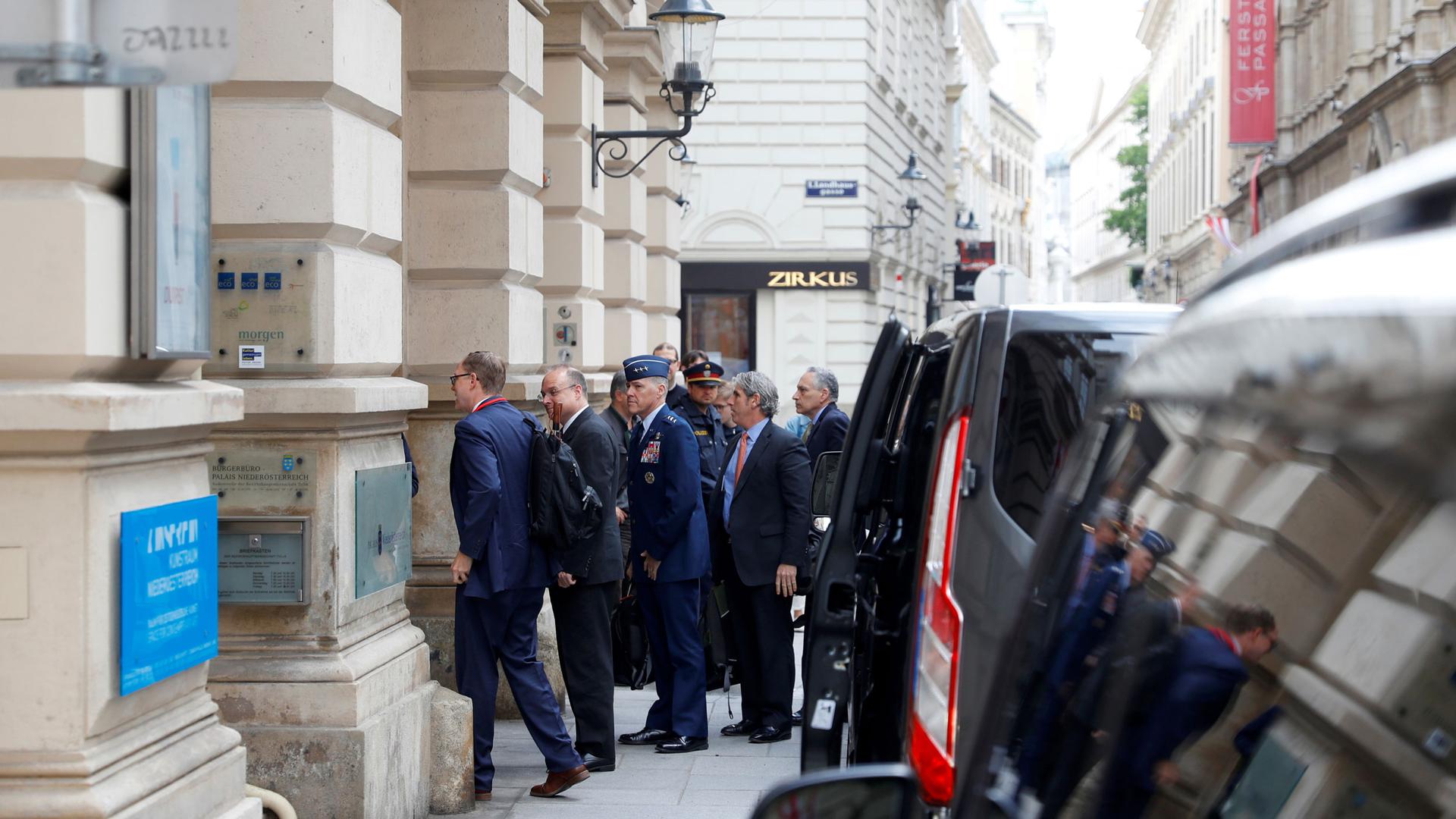China rebukes US envoy for photo stunt at nuclear talks with Russia
US special envoy Marshall Billingslea and his delegation arrive for a meeting with Russian deputy Foreign Minister Sergei Ryabkov in Vienna, Austria, June 22, 2020.
US and Russian officials met in Vienna on Monday to discuss to nuclear arms control. But the US envoy taunted China for its absence, earning a rebuke from Beijing for posting a picture of empty seats with Chinese flags
US President Donald Trump has sought to include Beijing in talks to replace the New Strategic Arms Reduction Treaty (START), the flagship nuclear arms treaty between the United States and Russia, which expires in February. China, a nuclear power with an arsenal a fraction the size of those of the Cold War-era superpowers, has repeatedly declined.
“China is a no-show,” US Special Presidential Envoy for Arms Control Marshall Billingslea said on Twitter around the time he arrived for the talks in a palace adjoining Austria’s Foreign Ministry.
“Beijing still hiding behind #GreatWallofSecrecy on its crash nuclear build-up, and so many other things. We will proceed with #Russia, notwithstanding,” he added. His post included a picture of a Chinese flags at empty seats around the negotiating table.
The director general of the arms control department at China’s Foreign Ministry, Fu Cong, responded: “What an odd scene! Displaying Chinese National Flags on a negotiating table without China’s consent! Good luck on the extension of the New START! Wonder how LOW you can go?”
China’s diplomatic mission in Vienna retweeted Billingslea’s photo with the caption “US performance art?”.
Russia, for its part, posted pictures of the talks after they started, with no Chinese flags. Austria’s Foreign Ministry, which hosted the talks, declined to comment.
The talks in Vienna are on a possible replacement for the 2010 New START, which caps US and Russian deployed strategic nuclear weapons warheads at 1,550 each. That replaced the original Cold War-era START treaty signed in 1991 six months before the Soviet Union collapsed.
China has around 300 warheads in total, roughly the same as France, and many times less than the thousands possessed by Washington and Moscow, according to the Stockholm International Peace Institute.
Trump, who has clashed with China on a range of issues, has repeatedly called for Beijing to join talks on a replacement for New START. China has rejected those calls.
Billingslea and his Russian interlocutor, Deputy Foreign Minister Sergei Ryabkov, both said little about the substance of the talks on their arrival.
“We’ll see,” Billingslea told Reuters when asked what he expected to come of the talks as he arrived. Ryabkov told reporters: “Let’s see, let’s see. We are always very hopeful.”
by Francois Murphy/Reuters
